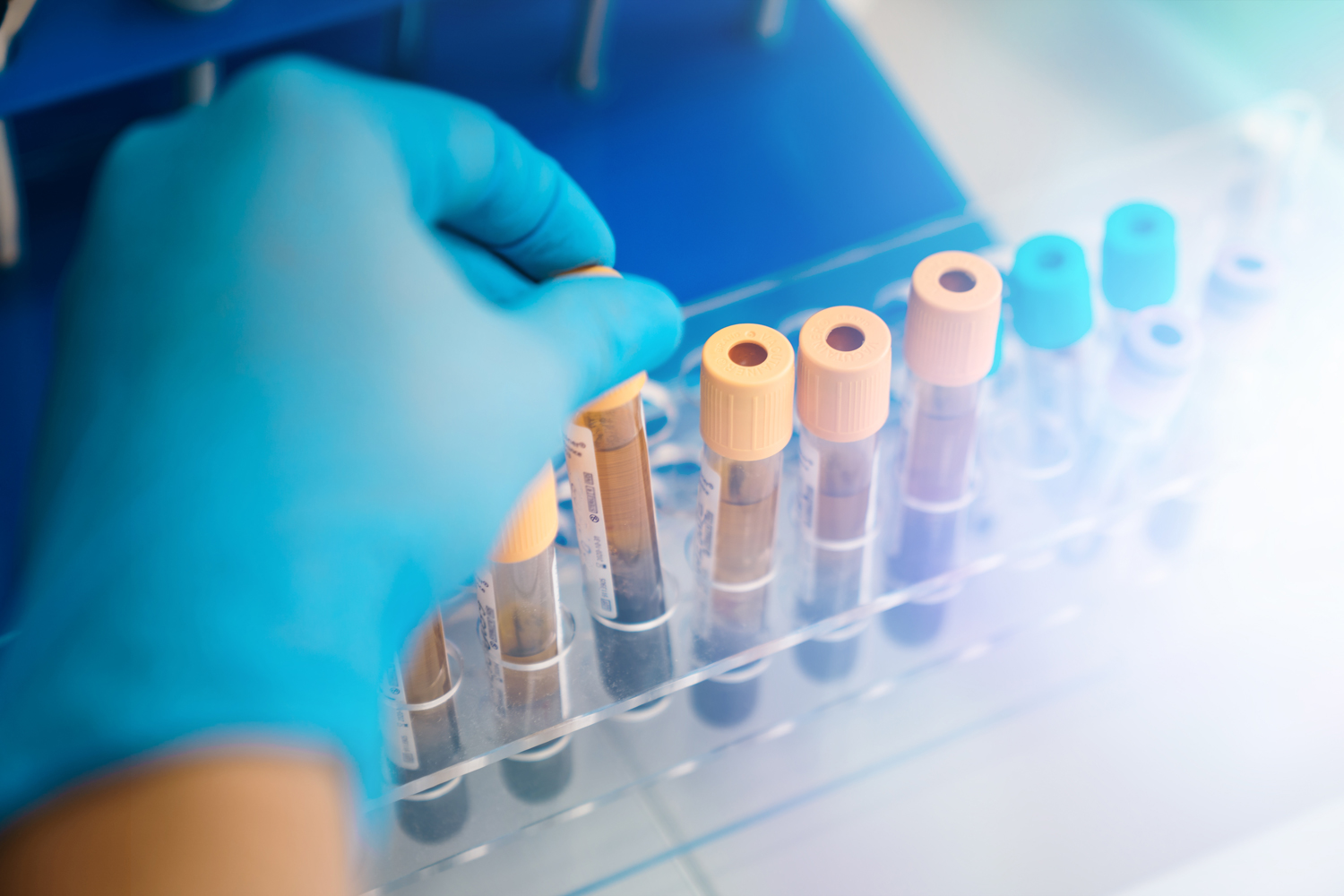Every week, the editors of Cancer Today magazine bring you the top news for cancer patients from around the internet. Stay up to date with the latest in cancer research and care by subscribing to our e-newsletter.
Breast Cancer Patients Benefit From Blood Test Finding Treatment Resistance
Using a blood test that finds early signs of treatment resistance to guide care for patients with advanced breast cancer can result in a longer time before disease progression and before a deterioration in quality of life compared with discovering cancer progression on a scan. The blood test can detect cancer changes sooner than a scan, meaning treatment adjustments can be made earlier, researchers say. A study presented June 1 at the American Society of Clinical Oncology annual meeting and published in the New England Journal of Medicine included 315 patients with advanced hormone receptor-positive breast cancer who were receiving standard treatment that controlled their disease. All of the patients had blood tests every two to three months to look for small amounts of mutated DNA on cancer cells that would indicate resistance to standard treatment. When resistance was detected, half of the patients continued to receive the standard treatment while the other half received an experimental drug called camizestrant. Women on camizestrant went 16 months before their disease progressed and 23 months before reporting serious quality-of-life issues, while women who continued on standard treatment showed disease progression at 9.2 months and reported quality-of-life issues at 6.4 months. “Blood-based diagnosis is really going to transform therapy. Remission is no longer going to be a passive process,” Norman “Ned” Sharpless, former director of the National Cancer Institute and now a professor at the University of North Carolina School of Medicine in Chapel Hill, told the New York Times. Frequent blood tests will allow doctors to adjust treatments faster before cancer has a chance to grow, he said.
Combination Therapy Improves Survival Time in Some Colorectal Cancer Patients
A combination treatment for an aggressive type of colorectal cancer doubled survival for patients. According to study results published May 30 in the New England Journal of Medicine and presented at the American Society of Clinical Oncology annual meeting in Chicago, the three-drug combination benefited patients whose cancers contain a mutation called BRAF V600E. About 10% of patients with colorectal cancer have the mutation, and they typically survive less than a year because the cancer doesn’t respond to standard chemotherapy treatments, according to a report on NBC News. For the study, patients were randomly assigned to different options for first-line therapy, meaning it was the first treatment the patients received. Some patients were given the three-drug combination—which included a standard chemotherapy drug, an antibody drug called cetuximab, and Braftovi (encorafenib), which targets the BRAF V600E mutation—while others received standard chemotherapy alone or in combination with bevacizumab, another colorectal cancer drug. Patients who took the three-drug treatment lived, on average, about 30 months, compared with about 15 months for those who received standard chemotherapy, with or without bevacizumab. More than 47% of patients on the three-drug treatment showed no disease progression after two years. “This is a really remarkable finding,” medical oncologist Scott Kopetz of the University of Texas MD Anderson Cancer Center in Houston, a co-principal investigator for the study, said to NBC News. “When we bring this together with standard of care chemotherapy, we get really substantially prolonged survival for these patients that are really unprecedented for this disease type.”
Blood Test Detects Cancer Years Before Symptoms Appear
A test that detects genetic material shed into the bloodstream by cancer tumors can identify cancer three years before a cancer diagnosis, according to a study published in the AACR journal Cancer Discovery. (The AACR publishes Cancer Today.) Researchers analyzed plasma samples from 52 participants in a National Institutes of Health-funded study looking for cardiovascular disease risk factors. The researchers used highly sensitive genetic sequencing to analyze the blood of 26 people who were diagnosed with cancer within six months of the blood being drawn and 26 people who were not diagnosed with cancer. Eight of the 52 participants tested positive for cancer using a multicancer blood test, and all eight were diagnosed with cancer within four months of the blood draw. Researchers were also able to assess blood drawn at least three years earlier from six of the eight and found traces of cancer in the blood of four of those people. “Three years earlier provides time for intervention,” medical oncologist and researcher Yuxuan Wang of the Johns Hopkins School of Medicine in Baltimore, the study’s lead author, said in a press release. “The tumors are likely to be much less advanced and more likely to be curable.”
Federal Research Funding Lags for High-mortality Cancers
Research on cancers with the highest mortality rates in the U.S. tend to be underfunded compared with other cancers, according to a study presented at the annual meeting of the American Society of Clinical Oncology in Chicago. Underfunding correlates with fewer clinical trials, which limits advances for these diseases, said gastrointestinal oncologist Suneel Kamath of Cleveland Clinic in Ohio, the study author. Kamath looked at publicly available databases to analyze federal funding from 2013 to 2022 to support research in several cancer types. The analysis showed that, based on incidence and mortality, some cancers were consistently well funded, including breast, cervical and ovarian cancers and leukemia and lymphoma. Underfunded cancers, according to the analysis, included colorectal, liver, lung and uterine cancers. “We continue to fund the outcome we already get, and we continue to neglect diseases for which we’re not getting the results we need,” Kamath told Healio. “We will never make progress in the tumor types that have high mortality rates—where we desperately need more effective therapies—until we start putting dollars toward those cancers.”
Cancer Today magazine is free to cancer patients, survivors and caregivers who live in the U.S. Subscribe here to receive four issues per year.





